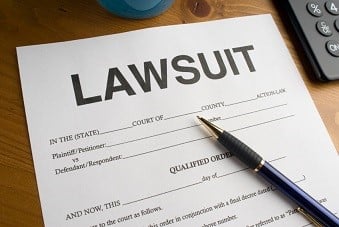An 87-year-old man was carrying towels in his condo building when he walked into a malfunctioning elevator that had stopped 25 centimetres above the ground floor.
He tripped and caught himself by stepping forward, putting all his weight on his surgically replaced knee. Or at least that’s what his $25,000 lawsuit against Schindler Elevator and his Toronto condominium company alleges.
Learn more about bodily injury here.
An elevator stopping below or above the ground floor, called unlevelled, is the most common cause of elevator claims according to Rena Novotny, claims manager at Square One Insurance.
“Whenever I had a claim involving someone alleging an elevator was unlevelled, the first thing I went to look for was the maintenance contract that the building had with the elevator company. Then, it was to determine whether the company was adhering to that maintenance contract,” Novotny said.
“A broker is going to want to make sure that any building that they’re representing a client on has all of the proper maintenance contracts in place for elevator maintenance and inspection. They should be aware there is a safety standards act in every jurisdiction that addresses the requirements for elevating devices. And they should at least question their clients about whether they have a maintenance contract for their elevators. Is it reasonable? Does it meet the standards?”
The Ontario Technical Standards and Safety Authority said injuries from elevators are increasing by 8% every year in the province, but John Tateossian,
HUB International’s vice president said he hasn’t seen any negative trends and elevators are still among the safest form of travel.
Want the latest insurance industry news first? Sign up for our completely free newsletter service now.
“(Brokers) need to have a solid understanding of how the elevators work… it’s not your typical insurance policy. There’s a lot of nuances to it and it’s important they know what coverages need be included,” Tateossian said.
“When it comes to elevators, it’s really a complex liability matter - there’s multiple parties involved, there’s different kinds of technology, so it’s really important for whoever’s defending the elevator company that there’s an insurance broker, an insurance carrier, defense attorney and a claims examiner that have experience in elevator claims.”
Elevator companies can be held liable for unlevelled elevators if they don’t inspect and repair the utilities every quarter, or in some cases every month, depending on the region and building type’s industry standard.
If the condo company gets a sniff of the malfunction and does nothing, they too could be held liable.
Related stories:
10 most outrageous Goldman Sachs elevator tweets
Derailment brings up dangers of hazardous materials


